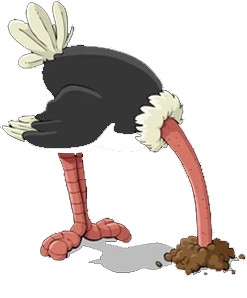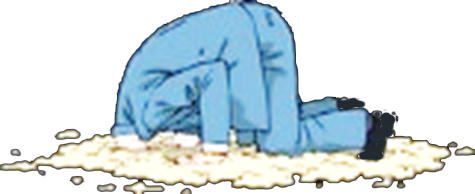What is "The Ostrich Factor? |
 In the mid-1970s, I was performing close-up magic in a number of restaurants in the Dallas/Fort Worth area. I used mostly classic tricks, Coins Across, a big penny routine, Card to Wallet, Color Changing Knives, etc. I knew these where good tricks. But somehow they were not getting the reactions I thought they should. The reactions were “okay”, but I knew they were not as good as they could be. After many repetitions, I knew they just didn’t “feel” right.
In the mid-1970s, I was performing close-up magic in a number of restaurants in the Dallas/Fort Worth area. I used mostly classic tricks, Coins Across, a big penny routine, Card to Wallet, Color Changing Knives, etc. I knew these where good tricks. But somehow they were not getting the reactions I thought they should. The reactions were “okay”, but I knew they were not as good as they could be. After many repetitions, I knew they just didn’t “feel” right.
I had good mentors. I had studied Maskelyne, Fitzkee, Nelms, Tarbell and others. I knew the traditions and axioms of the art. I started magic when I was about eight years old. I had great mentors along the way. What was the trouble? I set aside my ego and did some soul-searching. I discovered that although I knew the axioms and traditions of the craft, I did not intelligently, creatively and consciously apply them.
 I assumed that because I knew about the rules of the craft, because of my experience, I would somehow automatically apply them. That was a wrong assumption! I was like the proverbial ostrich with his head in the sand. I overlooked and neglected the very details that could make my performances as good they could be. Overlooking the axioms of the craft, I have coined “The Ostrich Factor”.
I assumed that because I knew about the rules of the craft, because of my experience, I would somehow automatically apply them. That was a wrong assumption! I was like the proverbial ostrich with his head in the sand. I overlooked and neglected the very details that could make my performances as good they could be. Overlooking the axioms of the craft, I have coined “The Ostrich Factor”.
I noticed the same problem after watching other magicians perform who were my colleagues. These were good performers. Some of them were "big names" among the magic community. If their performances had weaknesses, and they did, they could have strengthened them by applying well-known principles of the craft.
Most all magicians know the basic principles of magic. I.e. the eye follows movement, a large movement covers a secret small movement, a surprise or comedy line covers a secret action. But the quest for uniqueness, to create something new or maybe arrogance sometimes causes us to neglect the axioms. For whatever reason, if we overlook and don’t apply the ageless established rules of the craft when constructing our performances, we become victims of “The Ostrich Factor.”
What can we do to make our performances everything they can be? We can practice creatively, systematically, intelligently and apply the well-known ancient axioms. But that is easier said than done! Practice does not necessarily make perfect if our practice is arbitrary and haphazard. The Ostrich Factor book explains how to approach these challenges in practice, rehearsal and performance. The book can help anyone who wants to use their time more efficiently, practice creatively, rehearse intelligently and pursue that persistent elusive goal: perfection. Our best performance should be our goal for the art, for our audiences, for ourselves and posterity. The Ostrich Factor practice method helps to achieve our goal: to be the best we can be.
Home - Venues - About Gerald - Videos - Contact Gerald |